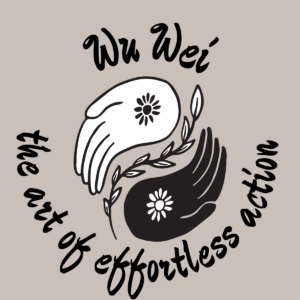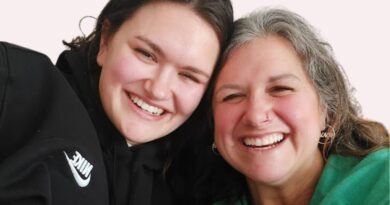Written by: Ash Beckham
When I took the stage at TEDxBoulder to talk about coming out of your closet, I wasn’t just sharing my story as a lesbian. I was sharing a story about all of us—about the courage it takes to open up, to live honestly, and to let go of the fear of judgment.
You see, the concept of “coming out” often gets pigeonholed into one specific context—revealing one’s sexual orientation. For many years, that was the way I thought about it, too. My coming-out story was one of claiming my identity as a lesbian, and yes, it was terrifying.
It was messy, awkward, and full of uncertainty. But what I learned from that experience is that “coming out” isn’t just about being LGBTQ+. It’s about being human. It’s about telling the truth, whatever that truth may be.
The Universality of the Closet
Let me explain what I mean by “the closet.” We all have them. Closets are the spaces where we hide parts of ourselves we fear others won’t accept. It could be admitting a mental health struggle, revealing a dream you’re scared to pursue, sharing a diagnosis, or confessing a failure.

These closets aren’t limited to identity—they’re part of any human experience where fear keeps us silent.
I remember a specific moment when this idea clicked for me. I was working as a waitress when a little girl came up to me and asked, “Are you a boy or a girl?” It wasn’t malicious—it was pure, childlike curiosity. But I froze.
In that instant, I had to decide whether to hide behind defensiveness or lean into authenticity. I chose the latter, and I said, I’m a girl. Some girls look like me. Her simple “Oh, okay!” was such a relief.
It wasn’t just about answering her question—it was about being real with her. If a child can handle that level of honesty, why do adults make it so complicated?
The Weight of Secrecy on Ash Beckham’s Life
Hiding is exhausting. The mental and emotional toll of maintaining a facade can feel like walking around with a grenade in your hand, pin pulled. You can’t relax because at any moment, it might explode.
When I came out as a lesbian, it felt exactly like that. I was constantly calculating my words, worrying about reactions, and rehearsing what I would say if someone confronted me. It’s exhausting living that way—afraid of the truth, afraid of who you are, afraid of being known.
But here’s the thing: Hard is not relative. Hard is hard. Whether you’re coming out as gay, admitting a job loss, or telling your partner you’re not happy, your struggle is valid. One person’s difficult truth doesn’t diminish another’s.
This realization helped me see that the courage it took to come out as gay wasn’t fundamentally different from the courage it takes to share any vulnerable truth.
Being Authentic Is a Daily Choice
Living authentically isn’t a one-time act. It’s a commitment to showing up as yourself, day after day, even when it feels uncomfortable. It means telling the truth, even when your voice shakes, and being honest when it would be so much easier to put on a mask and go unnoticed.

Imagine this: You’re in a team meeting at work, and a decision is being made that goes against your values. Everyone else is nodding along, but you feel a knot in your stomach. Living authentically means finding the courage to speak up and say, “I have a different perspective I’d like to share.”
It’s acknowledging that your voice matters, even if it goes against the grain. It’s choosing integrity over approval and standing firm in who you are, regardless of how others respond. Authenticity is not about being perfect—it’s about being real, even when being real is hard.
One of the most profound lessons I’ve learned is that authenticity is not synonymous with perfection. Sometimes, being real means admitting that you’re still figuring it out. I didn’t always have the perfect response when people asked me about my identity.
Sometimes I stumbled through explanations or avoided the question altogether. But over time, I learned that the fear of not being accepted was often worse than the reality.
The Power of Vulnerability According to Ash Beckham
When I shared my story on that TEDx stage, I wasn’t just hoping to connect with the LGBTQ+ community—I wanted to connect with anyone who had ever felt afraid to be themselves. I wanted to reach the person struggling to admit they’re overwhelmed, the parent afraid to say they don’t have all the answers, the friend too scared to confess they’re feeling lonely.
Vulnerability is terrifying because it means opening ourselves up to judgment, rejection, or misunderstanding. It’s standing in the light without any armor, knowing that what you reveal may not be accepted. But vulnerability is also transformative. It’s where real connection begins.
It’s the moment when we stop performing and start being. It can look like saying, “I need help” instead of pretending everything is fine. It can mean sharing a dream you’ve kept hidden out of fear of failure.
It’s choosing honesty, even when it’s easier to stay silent. In that vulnerability, we create space for others to be real with us too. We invite them to drop their own masks and step out of their closets.
When we dare to be vulnerable, we invite others to do the same. I can’t tell you how many people approached me after that talk to share their own closets—the mom who had just gotten divorced, the man who was struggling with addiction, the young professional who felt trapped in a career they didn’t love.
They saw themselves in my story because everyone knows what it feels like to hide.
Why We Stay in the Closet
Fear keeps us locked inside our closets. Fear of rejection, fear of judgment, fear of loss.
Sometimes, we convince ourselves that keeping the truth inside is easier. We worry about the consequences—will people still love us? Will we lose our job? Will we be ostracized from our community?
What I’ve come to understand is that staying silent doesn’t make the fear go away. It just gives it more power.
When I finally admitted to myself that I was tired of hiding, that I deserved to live honestly, that’s when I started to feel free.
Three Principles for Coming Out of Your Closet
There are three guiding principles that have helped me embrace authenticity:
- Be Authentic: You can’t live someone else’s version of your life. Own your story, even if it’s imperfect.
- Be Direct: Stop beating around the bush. Say what you mean, even when it’s uncomfortable.
- Be Unapologetic: Your truth doesn’t need to be validated by others. If it’s real to you, it matters.
These principles aren’t just for the big, dramatic moments. They’re for everyday life—whether you’re confronting a friend about a hurtful comment or admitting that you’re struggling with something personal.
The Ripple Effect of Courage
I’ll be honest—coming out didn’t solve all my problems. I still face judgment, and there are still situations where I feel apprehensive. But I’ve learned that courage doesn’t mean the absence of fear. It means choosing to move forward despite it.
When you take the first step out of your closet, you give others permission to do the same. I’ve seen how one act of honesty can create a ripple effect, challenging others to confront their own hidden truths. It’s one of the most powerful, transformative things you can do—not just for yourself, but for everyone around you.
Why It Matters Now More Than Ever According to Ash Beckham
In a world that often pressures us to conform, embracing authenticity is an act of resistance. It’s about saying, “This is who I am, and I deserve to be seen.” It’s about dismantling the idea that some truths are too difficult to face.

We’re living in a time where divisions are growing deeper, and people are more isolated than ever. The most radical thing you can do is to show up as yourself, without pretense or apology. But embracing authenticity isn’t always easy—it takes courage, and courage is a skill you can build.
Start by getting comfortable with self-reflection. Spend time understanding your values, what matters most to you, and where you feel most yourself. Practice speaking your truth in low-stakes situations—sharing your honest opinions with close friends or expressing your needs at home.
Surround yourself with people who celebrate your authenticity rather than those who pressure you to conform. Embrace discomfort as part of growth, knowing that the fear you feel is a sign you’re stepping into something meaningful.
When you do this, you create space for others to be real, too. Your courage can become a beacon, giving them permission to drop their own masks and be seen for who they truly are.
Embracing the Journey
My journey isn’t over, and neither is yours. Coming out of your closet doesn’t happen just once. It happens every day—in conversations with friends, in interactions at work, in quiet moments of self-reflection. Each time you choose authenticity over fear, you make it a little easier for the next person to do the same.
If you’re struggling with your own closet right now, I want you to know that I see you. I know how heavy that door can feel, how daunting it can be to take the first step. But trust me—on the other side of that fear is freedom. On the other side is the life you deserve to live.
Step up. Speak out. Be real. You are worth it.
Ash Beckham is a mom of two, speaker, career coach, equality advocate and author of Step Up: How to Live with Courage and Become an Everyday Leader.





























0 Comments